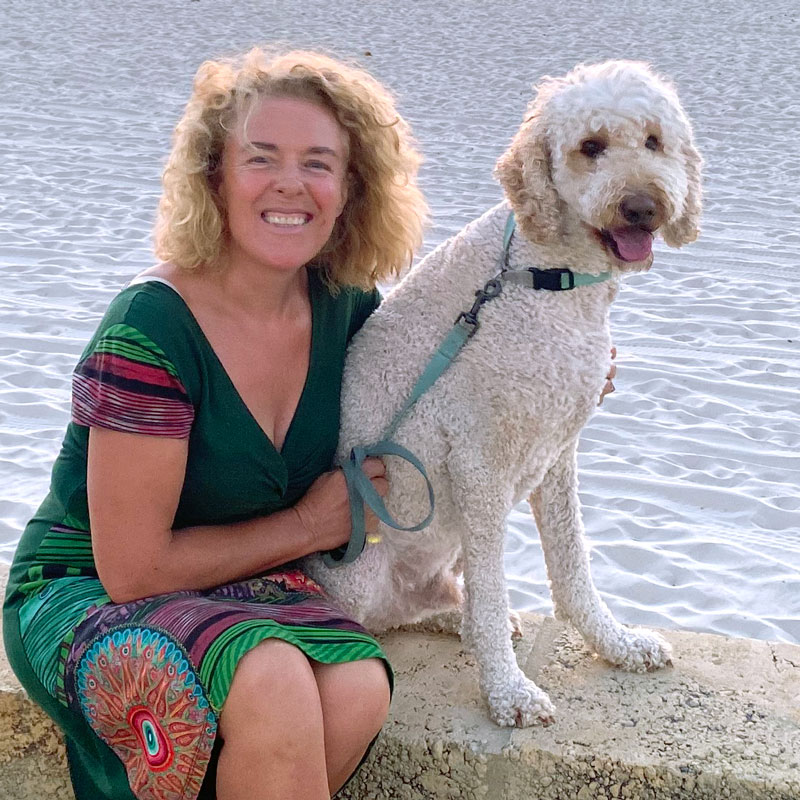Welcome back to my blog. Here’s the link to the audio version if you’d prefer to listen. Hopefully you’re doing OK and treating yourself with the kindness you deserve. Please be aware that this post contains details about suicide and might be distressing to some readers. I urge you to keep your own self-care at the front of your mind.
You know when a song gets it into your head and it just won’t leave? There’s this one song playing over and over in my head since I first heard it not so long ago. It goes like this: ‘running away is easy, it’s the living that’s hard’. The song is by the band BADBADNOTGOOD called Time Moves Slow.
Dedicating this blog to Paula
I wasn’t really thinking too deeply about the meaning of the song, just singing it mindlessly to myself as I went about my business. And then something really awful happened, and it was as though the meaning behind the lyrics hit me hard in the heart. We recently lost a valued member of a sobriety group that I belong to because the living became impossible for her. I am dedicating this blog to Paula who tried with all her might to overcome her demons but sadly lost the battle. She had been doing really well, proudly sharing with us how she had achieved eight months of sobriety. Then one day recently she fell off the wagon and her whole world caved in on top of her. She beat herself up badly. She wrote in our Facebook group how she hated herself for it. She was overtaken with immense pain, pain that was too much to bear. She lost all hope. I feel sick that I wasn’t there for her. I feel sad that she couldn’t see how strong she’d been to have achieved eight days of sobriety, not to mention the eight months that she’d stayed sober for. Imagine how much turmoil and pain Paula must have been in if ending her life was the easier of the two options?
Internalising stigma
Paula internalised the stigma that our society pins on people who abuse substances. I absolutely detest this kind of judgement. It is never acceptable to assume that we know what is driving someone’s unhealthy behaviour. People who feel compelled to self-medicate with substances do not need to be shamed by others because we’re mostly very good at doing this to ourselves. I can only speak from my own experience, I hated myself for doing something that I knew was destructive to my health and other aspects of my life. I tried many times to stop that behaviour.
Managing our own recovery
The only reason I’m managing to stay sober this time around is because I forced myself to get the help that I needed. I attended group therapy with incredible people from all walks of life and backgrounds, each of them battling with similar issues, and together we learnt the necessary skills to manage our own recovery. We supported one another, we cried together, and we healed together. We found connection and we became accountable to one another for setting goals to help etch out the life we desperately wanted for ourselves. I also had one-on-one counselling to help me to make sense of my own unique experiences. To try to do this alone would have been next to impossible for me.
A flicker of light
When ending one’s life feels like the easiest option, then living must feel excruciatingly hard. Having a good reason to live is not always within a person’s vision. Sometimes, because of the darkness that sabotages a person’s mental health, the only way out that they can see is further into the darkness. That little flicker of light that keeps many of us hanging on just isn’t visible to them. And that’s the illness, that’s the heart-breaking sadness that causes a person to lose all hope. Add to this an excessive amount of a substance at a particular moment in time, then the darkness can consume the person even more. And that’s what happened to Paula. Having seen the way Paula supported members of our online group, I believe that she would not have wanted her passing to be in vain, but instead, would want others to find the support they need to not fall so far into the darkness.
Any number of sober days is significant
Here’s what I believe: any number of sober days is significant. Even just one day of not doing what your body and mind in withdrawal is screaming at you to do is a massive achievement. It does not mean you’re a failure if you miss a day or two, or a thousand. Knowing that you can do it at all is something to hold onto. When the time is right, you will get to it. But know that when we embrace a sober life, we also embrace all the feelings that come with it. Some of them are hard but they are part of life.That’s why we need support from a counsellor. Know that those feelings will get easier to manage in time. Time is a great healer. But also accept that a wound has to itch before it can heal, so be prepared to feel really uncomfortable sometimes. Do not do it alone. Seek out peers, people who understand. Face-to-face connection in the real world as opposed to the virtual one, is definitely of more therapeutic benefit because of the sense of connection it gives us. But connecting through a virtual meeting app is also beneficial – one where you can see each other and connect with eyes, not just words.
For god’s sake, drop the shame
For god’s sake, drop the shame. If only people knew the truth. There are thousands and thousands of people hiding their suffering from the world, self-medicating with all sorts of things in an attempt to get through life. They only hide it out of fear of judgement. Stuff the begrudgers is what I say! I receive so many emails from people who share their stories with me, stories of trying to kill pain with substances but ending up in even more pain than they ever were to begin with. But it really doesn’t have to be like that. The first step is finding the courage to say, ‘I have a problem and I don’t want to have it anymore.’ That is powerful. That is the key that opens the door to action. Taking action must involve getting help. When we are unwell, we need people to take care of us. That’s a very basic human need but it’s one that has been beaten out of us by society. We are told to be strong, to pick ourselves up, to be grateful for what we have, bla bla bla. But it’s not as simple as that, is it! No, it bloody well isn’t. We need others to show us compassion when we have lost it for ourselves. We need someone who understands and who can see past the darkness of our soul and into the life-force that is there within us. That life force is often dormant – numbed from years of self-medicating – but, if prised out of us with the help of someone, will be what brings us back to living to our full potential instead of just surviving in an unhappy cycle of self-destructive thoughts, feelings, and behaviours. Being unwell is not something to be ashamed of. It is a normal response that the body and/or mind has when life throws crap at us. While the substance we choose to abuse plays a big role in us becoming unwell, it is the reason for needing it in the first place that needs to be examined and understood in order that we can get well again and not repeat the cycle.
Reach out
So, in memory of Paula, I ask you to reach out if you are struggling or reach out to someone who you think might be struggling and see past the darkness into the potential that every human being has to live a meaningful and colourful life that will bring enough happiness to make the sadness worth it.
RIP dear Paula. You will not be forgotten.
If anyone reading this wants to get help and doesn’t know where to start, then I would recommend SMART Recovery as a good starting point. It is a free service that offers group meetings both virtual and physical in a number of countries around the world. Check out their website here. Thanks for being with me today. Be well and take good care of yourself. Love, Gill x

